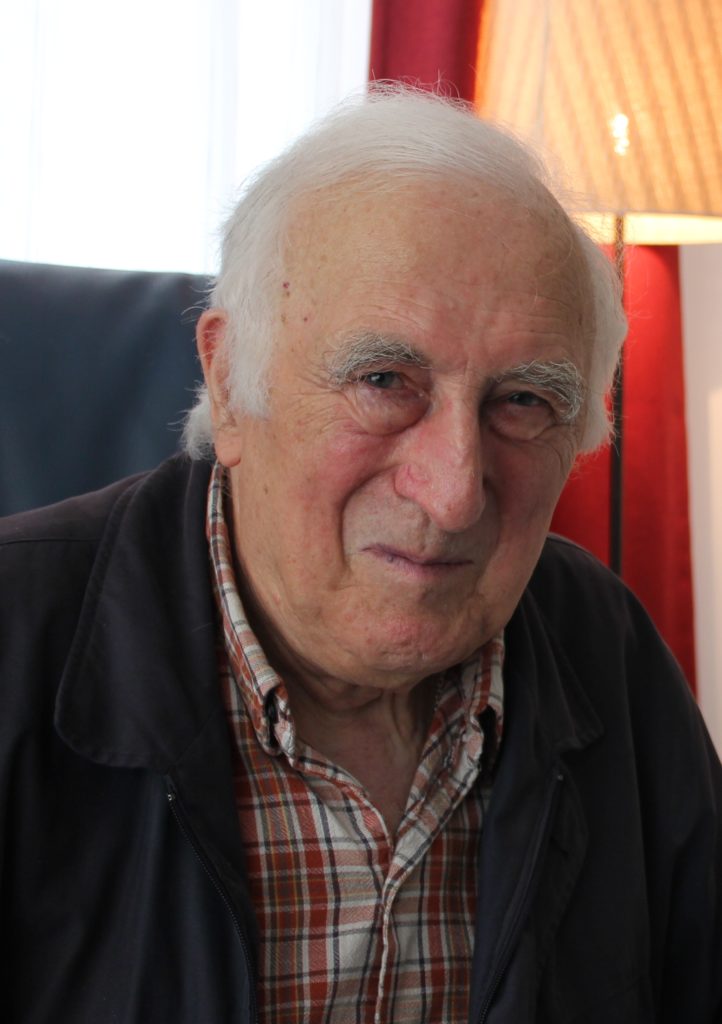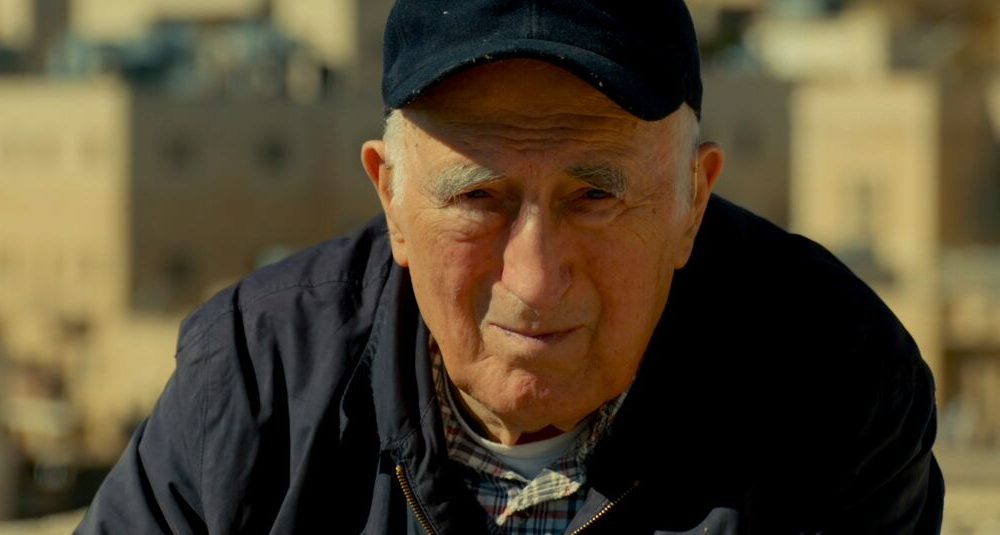The life of Jean Vanier gives us a glimpse of Heaven on Earth
Following Jesus into the world of those living with intellectual disability
Jean Vanier, the founder of the L’Arche movement has died aged 90.
It was a simple act, but with power to change the world. In 1964, Jean Vanier, a Canadian naval veteran invited two men living with intellectual disability, Raphaël Simi and Philippe Seux, to leave their institutions and join him in his home in Trosly-Breuil, France.
Vanier recalled: “Essentially, they wanted a friend. They were not very interested in my knowledge or my ability to do things, but rather they needed my heart and my being.”

Jean Vanier, May 2012 in Trosly, France. (Cropped). Image: Kotukaran1 License
All three men had started a new life, a radical experiment in humanity which had to proceed by trial and error. “It was not “a couple of r….ds” whom Jean welcomed, but Raphaël and Philippe; it was not an institution which he created, but a commitment he made to those two men whose cry for friendship had so moved him”, the official biography reads.
Vanier sent out a call for help establishing more homes, and young people from France, Germany and Britain quickly answered the call to become “assistants” living with people with intellectual difficulties.
It was as though the values of the kingdom of heaven had become a practical reality. The homes called “L’Arche” – French for “the ark” have spread around the world, with more than 150 communities and 10,000 members.
“I began L’Arche in 1964, in the desire to live the Gospel and to follow Jesus Christ more closely,” Vanier wrote in “Community and Growth”, possibly his most popular book. “Each day brings me new lessons on how much Christian life must grow in community, and on how much that life needs faith, the love of Jesus and the presence of the Holy Spirit if it is to deepen.”
Possibly the most famous “assistant” in a L’Arche community was the “Catholic evangelical” writer Henri Nouwen. Nouwen, whose intimate confessional style of writing touched millions, wrote about it in his book “The Road To Daybreak” – Daybreak being the name of a L’Arche community near Toronto that gently drew Nouwen in.
Nouwen wrote that, whilst on a visit to Trosly, “during evening prayer we sang simple songs, we listened to Danny one of the handicapped men from Cork who with great difficulty read from Jean Vanier’s book ‘I meet Jesus’, and we prayed. Danny said ‘I love you Jesus. I do not reject you even when I get nervous once in a while …. I love you with my arms, my legs, my head, my heart, I love you Jesus and I do not reject you Jesus, I know that you love me so much. I love you too, Jesus.’ As he prayed I looked at his beautiful gentle face and saw without veil or cover his agony as well as his love. Who would not respond to a prayer like that?
“I suddenly felt a deep desire to invite all my students from Harvard to sit with me there in that circle. I felt a deep love for all those men and women I had tried to speak about Jesus and had often failed to touch….”
L’Arche won, and Nouwen left his lecturing job at Harvard to join Daybreak. In his book “Adam” he describes the routine of spending 90 minutes each day getting Adam, for whom he was an assistant, out of bed and dressed. It required a total inversion of values to see that as more significant than being a beloved professor at Harvard University.
On reading of Vanier’s “Community and Growth”, it becomes apparent that the demands of living in community, of loving the people with whom you live, are the demands faced by all who would seek to follow Jesus.
“If we remain at the level of ‘doing’ something for people we can stay behind our barriers of superiority. We have to welcome the gift of the poor with open hands, Jesus says: ‘What you do for the least significant of my brothers (the ones you don’t notice and reject), you do for me.’ It’s true.
“We ask God each night in the L’Arche prayer to help us see in the sufferings of our wounded brothers and sisters the humble presence of the living Jesus.”
Vanier wrote of those coming into the community, as those seeking to learn to live in a passage highlighted in our family copy of the book:
“I am struck by the number of people who want to create or enter community. Their energies are so taken up by this aim that they no longer see reality or those beside them who need their attention and their touch. So their project blinds them. The best way to come into community is to have no project, but to live intensely, with all that means by way of work, openness to others, listening and welcome. Then the passage to life in community comes quite naturally.”
In a different way, the passage to a more intense way of living came naturally to my family. For we have been blessed to have a touch of L’Arche at home. I write these words a few weeks after my daughter wore the Green and Gold at the Abu Dhabi Special Olympics and with her basketball team mates won gold.
I have to say that my life has been lived far more prayerfully, intensely, with greater openness to others, and with more learning of welcome that it otherwise would have been without a child with an intellectual disability.
Vanier and Nouwen were on the bookshelves of the woman I was lucky enough to marry. Little did we know that they would light a bright path through our family life.
My suggestions for further reading:
Community and Growth, Jean Vanier, Paulist Press.
The Road to Daybreak, Henri J Nouwen, Darton, Longman and Todd
While Community and Growth is not available at Koorong they carry a large number of similar Vanier books.
I would suggest Life of the Beloved as a great Nouwen book to start with. A big range of his books are available at Koorong.


